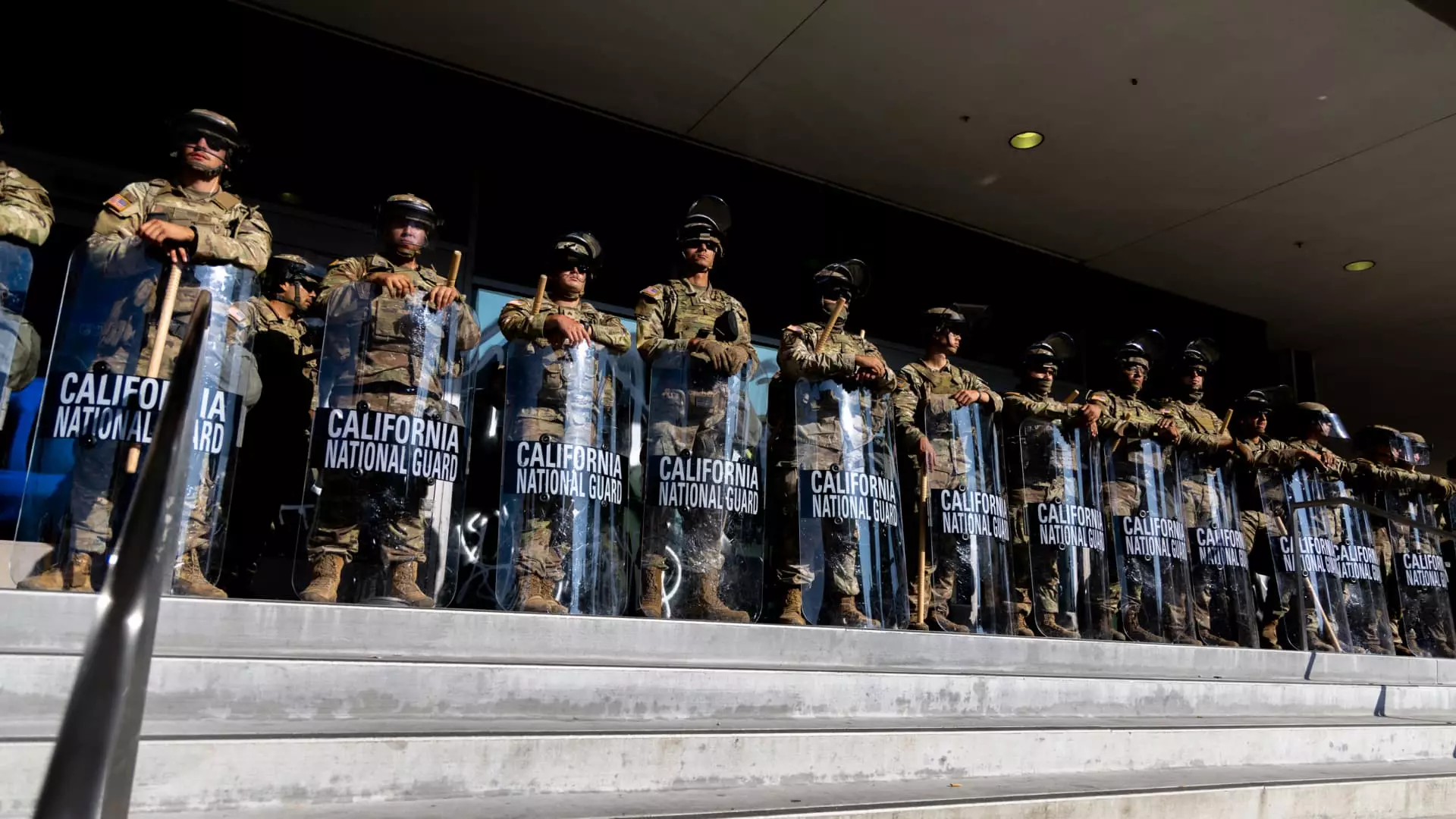In a remarkable display of federal authority, a recent ruling by the 9th U.S. Circuit Court of Appeals allows former President Donald Trump to maintain control of National Guard troops in Los Angeles—a move that has incensed many observers and sparked a renewed debate over the limits of presidential power. Authorized during a time of civil unrest following immigration raids, this decision marks a deviation from historical precedent; it’s the first instance since 1965 in which a President has unilaterally deployed state National Guard units without the governor’s consent. The ramifications of this ruling extend far beyond Los Angeles, posing serious questions about the balance of power between state authority and federal overreach.
It is alarming to witness how easily some legal entities can reconcile a president’s dubious exercise of power with mere references to “lawful authority.” The ruling’s potential normalization of such actions sets a dangerous precedent, where state autonomy is susceptible to manipulation under a guise of restoring order.
A Clash of Authority: Trump’s Deployment
At the heart of the case is the stark conflict between Trump’s administration and California Governor Gavin Newsom. Opposing views on the necessity and legality of deploying federal troops highlight the divisive political landscape in the United States. The National Guard was activated under the premise that it was crucial to respond to violent protests—this, despite the fact that local authorities argued the deployment exacerbated tensions and represented a usurpation of state governance.
When we examine the evidence laid out by the courts, one has to question the justification behind such drastic measures. It is true that protests often escalate to violence, yet to equate those actions with “rebellion” is to inflate the nature of the dissenters’ grievances. Lower court Judge Charles Breyer astutely pointed out that the protests were far from a rebellion, a clear acknowledgment of the importance of accurate terminology in legal contexts. The Trump administration’s narrative appears more aimed at establishing control than addressing real issues surrounding immigration and civil rights.
Legal Ambiguities and Consequences
What becomes particularly troubling is the court’s acceptance of the Trump administration’s argument that it had a defensible rationale for sending troops on the basis of protecting federal interests. This insinuation that the government possesses the right to intervene with military might in civilian affairs—especially without the governor’s consent—presages a slippery slope toward authoritarianism. A three-judge panel’s endorsement of such reasoning raises flags about their interpretation of “significant” federal interests. Is it justified to prioritize federal authority over the autonomy of state governance? The implications here serve as a license for future administrations to exploit similar situations.
Furthermore, the ruling sparks concerns about the lengthening shadow of executive power in an already polarized political climate. The consequences of allowing a sitting president to militarize local governance under ambiguous and arguably overstated circumstances disrupts the very checks and balances that are meant to protect us from tyranny.
Implications for Future Governance
As the legal battle continues to unfold, a cloud looms over the future relationship between federal and state governments in the United States. If the ramifications of this ruling linger and permeate future administrations—regardless of party affiliation—then we are bound to witness more aggressive uses of military authority within civilian realms. This could serve to strategically ramify dissent and enable a dangerous normalization of federal intrusion into state matters.
World events have made us hyper-aware of the balance between maintaining order and preserving civil rights. The question remains: how far will American leadership go to enforce laws if citizens express outrage through mass protests? With historical precedent as our guide, it is imperative to resist normalizing interventions that serve to stifle dissent rather than resolve the underlying issues that incite it. The implications of allowing a president—regardless of party affiliation—to commandeer state guard troops warrant serious scrutiny and robust debate.

